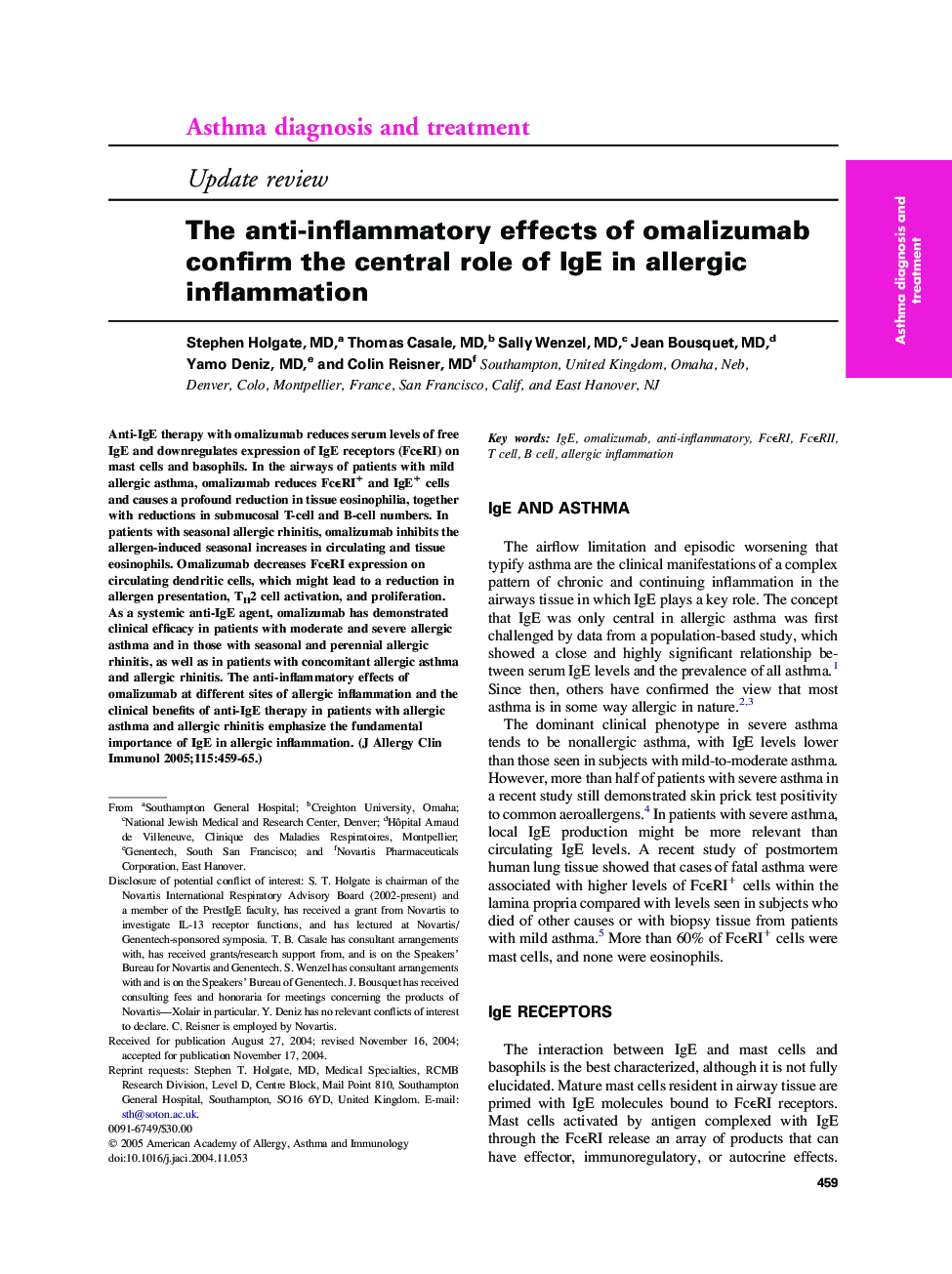| Article ID | Journal | Published Year | Pages | File Type |
|---|---|---|---|---|
| 9227864 | Journal of Allergy and Clinical Immunology | 2005 | 7 Pages |
Abstract
Anti-IgE therapy with omalizumab reduces serum levels of free IgE and downregulates expression of IgE receptors (FcεRI) on mast cells and basophils. In the airways of patients with mild allergic asthma, omalizumab reduces FcεRI+ and IgE+ cells and causes a profound reduction in tissue eosinophilia, together with reductions in submucosal T-cell and B-cell numbers. In patients with seasonal allergic rhinitis, omalizumab inhibits the allergen-induced seasonal increases in circulating and tissue eosinophils. Omalizumab decreases FcεRI expression on circulating dendritic cells, which might lead to a reduction in allergen presentation, TH2 cell activation, and proliferation. As a systemic anti-IgE agent, omalizumab has demonstrated clinical efficacy in patients with moderate and severe allergic asthma and in those with seasonal and perennial allergic rhinitis, as well as in patients with concomitant allergic asthma and allergic rhinitis. The anti-inflammatory effects of omalizumab at different sites of allergic inflammation and the clinical benefits of anti-IgE therapy in patients with allergic asthma and allergic rhinitis emphasize the fundamental importance of IgE in allergic inflammation.
Keywords
Related Topics
Life Sciences
Immunology and Microbiology
Immunology
Authors
Stephen MD, Thomas MD, Sally MD, Jean MD, Yamo MD, Colin MD,
